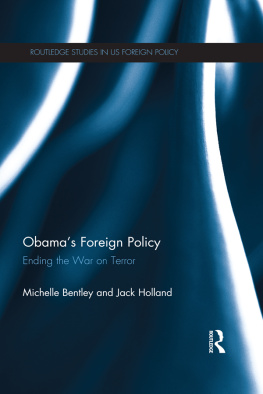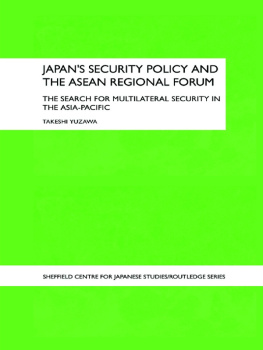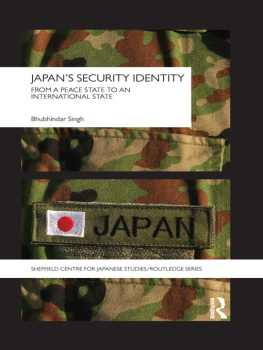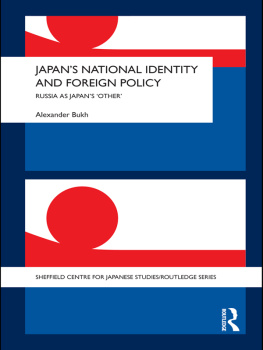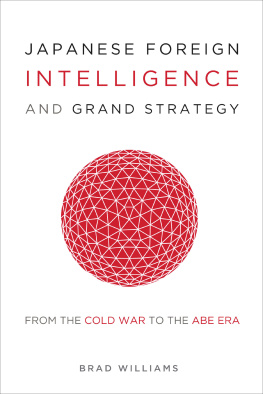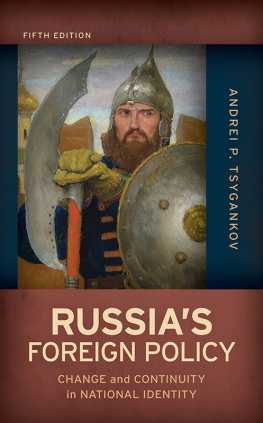Japan and Germany as Regional Actors
The end of the Cold War and the bipolar era constituted a significant change in Germanys and Japans foreign policy settings, granting both countries greater leeway to pursue policies divergent from Washingtons strategy. This important book fills a gap in the existing literature by employing an explicitly comparative framework for analyzing and evaluating Germanys and Japans post-Cold War regional foreign policy trajectories. Recent non-comparative studies diverge in their assessments of the extent to which the two countries foreign policies are characterized by continuity or change, as while the majority of analyses on Germany find overall continuity in policies and guiding principles, prominent works on Japan see the country undergoing drastic change. Through a qualitative content analysis of key foreign policy speeches, this book traces and compares German and Japanese national role conceptions by identifying policy-makers perceived duties and responsibilities of their country in international politics. Further, through two case studies on missile defence policies and textbook disputes this study investigates actual foreign policy behaviour in order to question the assertion that post-Cold War Germany and Japan are following very different paths.
Providing a much needed new analysis of German and Japanese foreign policies, this book will be of great use to students and scholars interested in Japanese politics, German politics, comparative politics and international relations more generally.
Alexandra Sakaki is a Robert Bosch Foundation research fellow at the German Institute for International and Security Affairs (Stiftung Wissenschaft und Politik) in Berlin, Germany.
Routledge Politics in Asia series
Formerly edited by Michael Leifer
London School of Economics
ASEAN and the Security of South-East Asia
Michael Leifer
Chinas Policy towards Territorial Disputes
The case of the South China Sea islands
Chi-kin Lo
India and Southeast Asia
Indian perceptions and policies
Mohammed Ayoob
Gorbachev and Southeast Asia
Leszek Buszynski
Indonesian Politics under Suharto
Order, development and pressure for change
Michael R. J. Vatikiotis
The State and Ethnic Politics in Southeast Asia
David Brown
The Politics of Nation Building and Citizenship in Singapore
Michael Hill and Lian Kwen Fee
Politics in Indonesia
Democracy, Islam and the ideology of tolerance
Douglas E. Ramage
Communitarian Ideology and Democracy in Singapore
Beng-Huat Chua
The Challenge of Democracy in Nepal
Louise Brown
Japans Asia Policy
Wolf Mendl
The International Politics of the Asia-Pacific, 19451995
Michael Yahuda
Political Change in Southeast Asia
Trimming the banyan tree
Michael R. J. Vatikiotis
Hong Kong
Chinas challenge
Michael Yahuda
Korea versus Korea
A case of contested legitimacy
B. K. Gills
Taiwan and Chinese Nationalism
National identity and status in international society
Christopher Hughes
Managing Political Change in Singapore
The elected presidency
Kevin Y. L. Tan and Lam Peng Er
Islam in Malaysian Foreign Policy
Shanti Nair
Political Change in Thailand
Democracy and participation
Kevin Hewison
The Politics of NGOs in Southeast Asia
Participation and protest in the Philippines
Gerard Clarke
Malaysian Politics under Mahathir
R. S. Milne and Diane K. Mauzy
Indonesia and China
The politics of a troubled relationship
Rizal Sukma
Arming the Two Koreas
State, capital and military power
Taik-young Hamm
Engaging China
The management of an emerging power
Edited by Alastair Iain Johnston and Robert S. Ross
Singapores Foreign Policy
Coping with vulnerability
Michael Leifer
Philippine Politics and Society in the Twentieth Century
Colonial legacies, post-colonial trajectories
Eva-Lotta E. Hedman and John T. Sidel
Constructing a Security Community in Southeast Asia
ASEAN and the problem of regional order
Amitav Acharya
Monarchy in South East Asia
The faces of tradition in transition
Roger Kershaw
Korea After the Crash
The politics of economic recovery
Brian Bridges
The Future of North Korea
Edited by Tsuneo Akaha
The International Relations of Japan and South East Asia
Forging a new regionalism
Sueo Sudo
Power and Change in Central Asia
Edited by Sally N. Cummings
The Politics of Human Rights in Southeast Asia
Philip Eldridge
Political Business in East Asia
Edited by Edmund Terence Gomez
Singapore Politics under the Peoples Action Party
Diane K. Mauzy and R. S. Milne
Media and Politics in Pacific Asia
Duncan McCargo
Japanese Governance
Beyond Japan Inc.
Edited by Jennifer Amyx and Peter Drysdale
China and the Internet
Politics of the digital leap forward
Edited by Christopher R. Hughes and Gudrun Wacker
Challenging Authoritarianism in Southeast Asia
Comparing Indonesia and Malaysia
Edited by Ariel Heryanto and Sumit K. Mandal
Cooperative Security and the Balance of Power in ASEAN and the ARF
Ralf Emmers
Islam in Indonesian Foreign Policy
Rizal Sukma
Media, War and Terrorism
Responses from the Middle East and Asia
Edited by Peter Van der Veer and Shoma Munshi
China, Arms Control and Nonproliferation
Wendy Frieman
Communitarian Politics in Asia
Edited by Chua Beng Huat
East Timor, Australia and Regional Order
Intervention and its aftermath in Southeast Asia
James Cotton
Domestic Politics, International Bargaining and Chinas Territorial Disputes
Chien-peng Chung
Democratic Development in East Asia
Becky Shelley
International Politics of the Asia-Pacific since 1945
Michael Yahuda
Asian States
Beyond the developmental perspective
Edited by Richard Boyd and Tak-Wing Ngo
Civil Life, Globalization, and Political Change in Asia
Organizing between family and state
Edited by Robert P. Weller
Realism and Interdependence in Singapores Foreign Policy
Narayanan Ganesan
Party Politics in Taiwan
Party change and the democratic evolution of Taiwan, 19912004
Dafydd Fell
State Terrorism and Political Identity in Indonesia
Fatally belonging
Ariel Heryanto
Chinas Rise, Taiwans Dilemmas and International Peace
Edited by Edward Friedman
Japan and China in the World Political Economy
Edited by Saadia M. Pekkanen and Kellee S. Tsai
Order and Security in Southeast Asia
Essays in memory of Michael Leifer
Edited by Joseph Chinyong Liow and Ralf Emmers
State Making in Asia
Edited by Richard Boyd and Tak-Wing Ngo
USChina Relations in the 21st Century
Power transition and peace
Zhiqun Zhu
Empire and Neoliberalism in Asia
Edited by Vedi R. Hadiz



